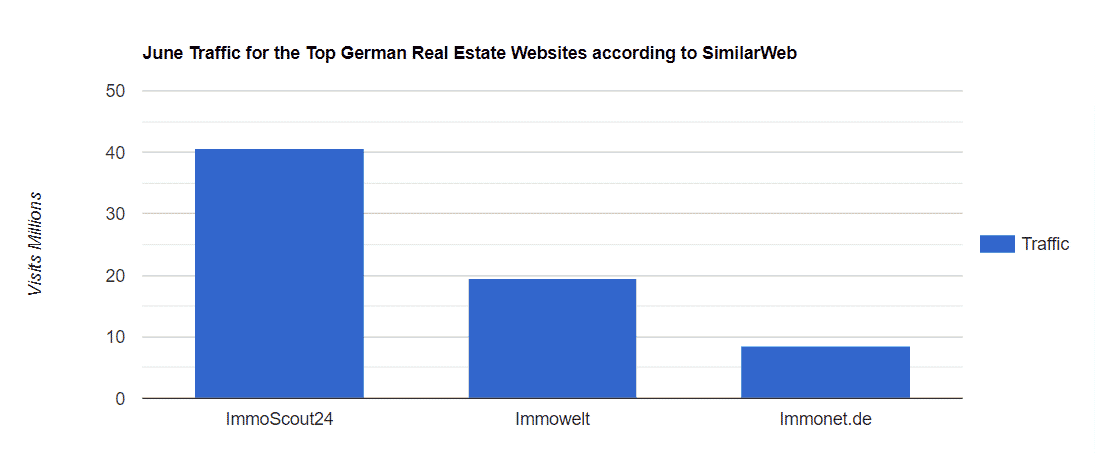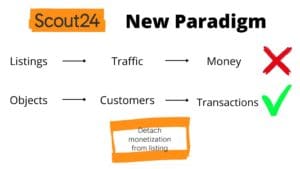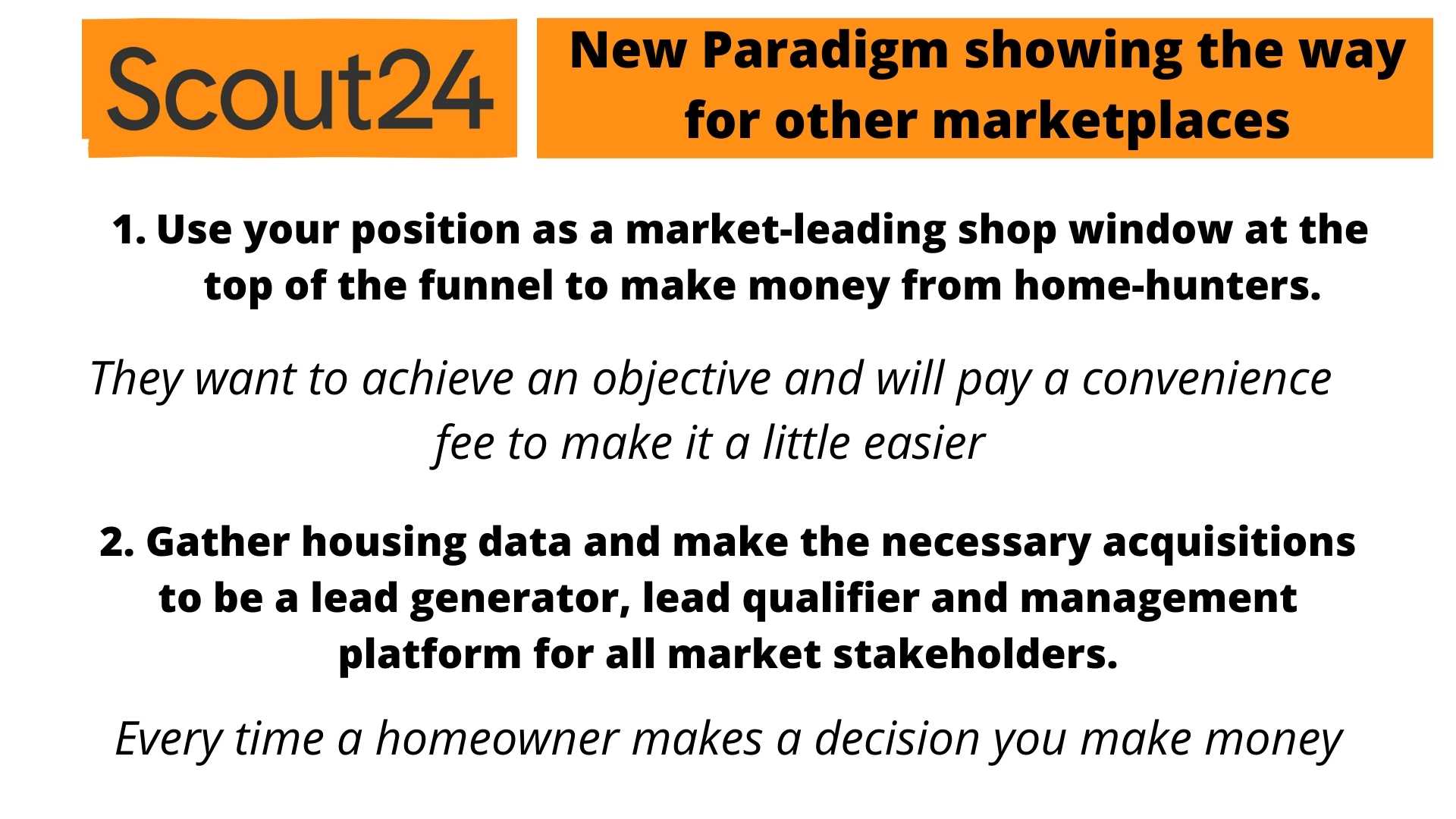
The progress of the world's top real estate portal companies towards the transaction has been a popular topic of conversation at Property Portal Watch events for many years. With Zillow's moonshot towards that goal having seemingly been grounded recently, the question only becomes more interesting.
One contender for the most advanced property portal business in the world and a company with one of the biggest names out there trying to show the way is Scout24, operator of leading German real estate portal site ImmobilienScout24.de.
Scout24's recent capital markets day was a chance for the company to tell investors where it's going and it included perhaps the clearest and most interesting exposition of how a major portal company plans to go about the next phase of its development in the post-online-classifieds era. There were plenty of ideas and takeaways for other companies paying attention and a great case study of what many portal companies are trying to achieve in 2022.
In this series of articles, we'll be analysing what Scout24 plans to do, how they are doing it and, crucially, why...
The crux of the company presentation was around increasing Scout24's total addressable market (TAM). Since divesting from leading German autos portal AutoScout24 in 2019 the company has obviously had fewer pools of revenue to fish in and, with its share price growth having stalled since the summer of 2020, has needed to come up with new ideas outside of increasing prices for customers.

Scout24 is already a fairly dominant leader in a mature market that has a sizeable agent commission pool which it has been using to fuel growth up to now. Like some of its big portal operating counterparts, Scout24's stated aim is to move forward by expanding its TAM beyond this agent commission pool - something it plans to do by expanding beyond advertising to focus on real estate transactions.

For CEO Tobias Hartmann, the change is nothing short of a full-blown, company-wide paradigm shift. The previous way of thinking where "the listing was the key to success" constitutes an outdated and "one-directional" way of thinking that "was built on one-off listings revenue".
With the company's new way of thinking, a house is no longer just a potential listing and one-off source of revenue but is now an object in a database that has many different fields and which can be interacted with in several different ways by different parties - all of whom can become Scout24 customers.

The talk about objects, which were defined by Hartmann as identifiable specific pieces of real estate enriched with all transaction-relevant data, felt a lot like the language used by Google a few years ago explaining a paradigm shift from basic 'keywords' to the much less binary 'knowledge graph'.
Scout24's strategy is to become a touchpoint for all stakeholders in all property journeys by being the main source of leads not just for agents looking to sell houses but for all sorts of adjacencies as well while also owning the platforms that these stakeholders manage their operations on.
Scout24 is targeting both private individuals as well as professionals as customers and is targeting them as they buy, sell and manage property. If the number of pools Scout24 is fishing in is ambitious, the depth it is casting its line to is just deep enough not to risk making too many waves.
The German market is characterised by a high percentage of rentals and by agents' relatively permissive attitudes when it comes to private sellers posting on portals. Even in a market without the agent vs portal battle lines of the UK or the USA, Scout24 doesn't appear to be pushing its luck too hard with regards to the disintermediation of agents.
The new paradigm does not involve owning inventory or necessarily doing something for agents that they might already do for themselves like viewing appointment scheduling. Hartmann claims that, for example, the extra seller leads Scout24 is able to generate for agents through its Immoverkauf brand is business that these agents would not have otherwise:
"It's a win-win for both the agents and us. And the question 'Aren't you going against the agents?' is no question. The agents love the service because it's additional business we're bringing to the table."
Scout24's is perhaps a more conservative approach to expanding the business's TAM than others. Until recently, for example, Zillow's strategy involved the company owning inventory, being a party in the transaction and risking bad PR among agents and the general public. Scout24's strategy is decidedly not a 'moonshot' like its American counterpart and is all firmly in what industry commentator Mike DelPrete calls "the portal comfort zone".
It feels like an importantly nuanced take on the accepted wisdom in the industry. Scout24's message here for other portals is perhaps that there are other ways of being closer to the transaction that aren't as grandiose as the one-stop-shop dream where the user experience when buying a house is just like any other e-commerce transaction.

There have been other companies that are on record about wanting to do something similar and there are a few that have things in place to do something similar to what Scout24 is doing, but until now none has put the case forward so concisely and, as we'll see in the next instalment of the series, few have as many pieces in place to make it a reality.
Notifications